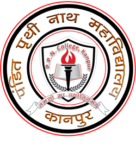7.1 Institutional Values and Social Responsibilities
7.1.1. Institution has initiated the Gender Audit and measures for the promotion of gender equity during the last five years.
All children and teenagers, especially females from socially and economically disadvantaged backgrounds, will receive an equitable and inclusive education, according to the National Education Policy 2020. A complete framework from primary education to higher education as well as vocational training in both rural and urban India is provided by the policy, which aims to usher in a new era in women's education. We also provide counselling facilities to the girl students from time to time so that we can understand the problems going on in their college life and could suggest appropriate solution to resolve them. With the objective of ensuring safety, respect, and self-reliance of women, under the initiative taken by the Government of Uttar Pradesh, our organization has constituted Mission Shakti Yojana Committee, which implements the programs directed by the government from time to time. To ensure that girls have access to safe and secure facilities, we have renovated and maintained women's restrooms in the campus. CCTV cameras have been installed in various parts of the college to ensure women's safety. We have implemented clear and confidential reporting mechanisms for cases of harassment or discrimination, providing women with the means to report incidents without fear of reprisal. Meritorious students who are economically disadvantaged might apply for scholarships to receive financial support. The college maintains inclusivity in its infrastructure. Our Institution has also inducted several women NCC cadets to its NCC unit who are regularly recognized for their outstanding contributions. Through the organization of seminars, awareness campaigns, and other efforts that foster discussion and understanding of gender-related topics, NSS plays a crucial role in fostering gender sensitization in our institution. It creates a welcoming atmosphere, instructs students on gender equity, and gives them the confidence to dispel prejudices and encourage respect among their classmates. Department of Psychology's research and course offerings that explore the nuances of gender issues play a significant role in developing gender sensitization. In 2022, a national seminar was organized by Department of Psychology on “Empowering Indian Women Through Resilience: Process and Potential”. By providing courses that examine the social dimensions of gender, the Department of Sociology actively promotes gender sensitization. It gives students a deep understanding of gender dynamics in society through study and thought-provoking debates. The curricular, co-curricular, and facility-related facets of our institution are all devoted to gender equity and sensitization. Together, these programs have made our academic community a more welcoming and encouraging place where everyone is encouraged to succeed, and diversity is respected. This includes all genders of members. Our commitment to implementing these initiatives to build a more just future for everybody does not waver.
File enclosed:
- Additional information
- Link for Additional information
7.1.2 The Institution has facilities and initiatives for
- Alternate sources of energy and energy conservation measures
- Management of the various types of degradable and non-degradable waste
- Water conservation
- Green campus initiatives
- Disabled-friendly, barrier free environment
File enclosed:
- Policy document on the green campus/plastic free campus.
- Bills for the purchase of equipment’s for the facilities created under this metric.
- Geo-tagged photographs/videos of the facilities.
- Circulars and report of activities for the implementation of the initiatives document
7.1.3 Quality audits on environment and energy regularly undertaken by the Institution.
The institutional environment and energy initiatives are confirmed through the following
- Green audit / Environment audit
- Energy audit
- Clean and green campus initiatives
- Beyond the campus environmental promotion and sustainability activities
File enclosed:
- Institutional data in the prescribed format (data template)
- Policy document on environment and energy usage Certificate from the auditing agency.
- Certificates of the awards received from recognized agency (if any).
- Report on environmental promotion and sustainability activities conducted beyond the campus with geo-tagged photographs with caption and date.
- Green audit/environmental audit report from recognized bodies
7.1.4. Describe the Institutional efforts/initiatives in providing an inclusive environment i.e., tolerance and harmony towards cultural, regional, linguistic, communal socioeconomic diversity and Sensitization of students and employees to the constitutional obligations: values, rights, duties and responsibilities of citizens
The lively community at our campus is built on the foundation of inclusion and acceptance of difference. Through a wide range of institutional initiatives, we actively foster acceptance of diversity, tolerance, and a culture where each person is respected. This commitment encompasses a range of characteristics, including social, linguistic, cultural, socioeconomic, and regional varieties.
Our inclusive approach is based on the core tenet of cultural diversity. The college hosts a wide range of events, including festivals, art exhibitions, and themed weeks, to highlight the diverse range of customs present in our campus community. These gatherings give students a chance to enjoy and talk about their distinctive backgrounds, which promotes tolerance and understanding amongst people from different cultural backgrounds. The end effect is a peaceful atmosphere that fosters harmony and embraces the diversity of cultures that characterizes our organization.
Another example of our commitment to fostering a friendly environment is our solidarity across religious boundaries. Various religious practices and beliefs mingle mixed together on our campus. Events such as shared festival celebrations, interfaith discussions, and religious holiday observance let people of diverse religious origins live in harmony with one another. For instance, during significant religious holidays like Diwali, Eid, Christmas, and more, the campus comes alive with colour and enthusiasm. These events provide students a platform to share their traditions while also acting as instructional forums where others can learn about the significance of various religious rites.
Apart from being inclusive in terms of culture and religion, our college also prioritizes linguistic variety. In academic and social settings, the institution aggressively promotes the use of vernacular languages in addition to English. Teachers encourage bilingual talks in the classroom. This method lowers language barriers and creates a more inclusive and friendly learning environment while also giving non-native English speakers a sense of community.
Another aspect that our college strongly supports is regional diversity. Mentorship programs, cultural exchange programs, and regional groups serve as means of fostering connections between students from diverse locations. Through these programs, people who are away from home can feel supported and at home, creating a sense of familiarity.
Our college places a high value on socioeconomic and neighbourhood inclusivity, making itself financially accessible through work-study and scholarship opportunities. The goal of these programs is to give children from different socioeconomic backgrounds equal opportunities. Constitutional sensitization seminars mold people’s views, rights, and obligations on campus, encouraging candid discussion and moral comprehension. To impart moral and ethical underpinnings, the curriculum goes beyond regular courses and includes justice, equality, and fundamental rights. The institution’s all-encompassing strategy, which includes diversity programs, bilingual education, religious harmony, and cultural events, develops socially conscious people who are prepared to contribute to a multicultural global society. In both personal and professional spheres, awareness and moral decision-making are ensured by emphasizing constitutional duties.
File enclosed:
- Additional information
- Link for Additional information
7.2 Best Practices
7.2.1. Describe two best practices successfully implemented by the Institution as per NAAC format provided in the Manual.
Web Link:
- Best practices as hosted on the Institutional website
- Any other relevant information.
7.3 Institutional Distinctiveness
7.3.1. Portray the performance of the Institution in one area distinctive to its priority and thrust within 1000 words.
The Happiness and Well-being Centre: Activities performed
- Online Workshop on Self-Awareness and Happiness: The Happiness and Well Being Center organized an online workshop at PPN PG College focusing on self-awareness and happiness. Professor Manas Mandal of Pennsylvania University emphasized the importance of self-knowledge in understanding happiness and overcoming challenges.Principal Prof. Anoop Kumar Singh, Coordinator Prof. Abha Singh, Dr. Rashmi Mishra, and 80 students actively participated in the workshop.
Outcome: Increased awareness among participants about the significance of self-awareness in achieving happiness and facing life's challenges.
- Workshop on Stress Management and Self-Awareness: Principal Prof. Anoop Singh highlighted the role of self-awareness as the initial step to attain happiness during an online workshop organized by the Happiness and Well- Being Center at PPN ( P.G.)College.
Outcome: Participants gained insights into the correlation between self-awareness and happiness, empowering them to strive for personal growth and fulfillment.
- In-depth Discussion on Self-Knowledge: Prof. Manas Mandal reiterated the importance of self-knowledge for understanding happiness and addressing future challenges. Coordinator Prof. Abha Singh, and members Dr. Rashmi Mishra, Dr. Krishna Kumar, Dr. Anita Rai, Alka Rani, Dr. Rizwana, and Dr. Manu Chauhan were present during the discussion.
Outcome: Enhanced understanding among attendees regarding the pivotal role of self-awareness in navigating life's complexities and fostering well-being.
- Practical Training on Stress Relief Techniques: Workshops and programs focused on providing practical tools for stress management and relaxation techniques. Trainers like Ashish Pandey imparted valuable knowledge on stress relief methods, benefiting more than 70 students.
Outcome: Participants equipped with effective strategies to alleviate stress, contributing to improved mental health and overall well-being.
- Emphasis on Work-Life Balance: Principal Prof. Anoop Kumar Singh emphasized the importance of adopting a balanced approach to life for effective stress management. Workshops organized under the Happiness and Balance Center underscored the significance of maintaining equilibrium in life.
Outcome: Increased awareness among participants about the necessity of balancing personal and professional responsibilities for holistic well-being.
- Collaborative Efforts for Student Well-Being: The Happiness and Wellness Center collaborated with the Psychology Department to organize workshops aimed at enhancing student well-being. Dr. Rashmi Mishra and other members have actively participated, contributing to the success of the programs. Outcome: Strengthened collaboration between departments to address student mental health needs effectively.
- Happiness and Well-being Center of Psychology Department of PPN College organised a workshop on relaxation techniques: The workshop on relaxation techniques underscored the importance of maintaining balance in life. Principal Prof. Anoop Kumar Singh emphasized this aspect during the event. Trainer Ashish Pandey's guidance on stress relief techniques reinforced the significance of achieving equilibrium in personal and professional spheres.
Outcome: In conclusion, the activities by the Happiness and Well- Being Center, with the Psychology Department at P.P.N.( P.G.) College, have significantly contributed to raising awareness about self-awareness, stress management, and holistic well-being among students and faculty members. These initiatives underscore a collective commitment towards fostering a supportive and nurturing environment conducive to personal growth and fulfillment.
Web Link:

